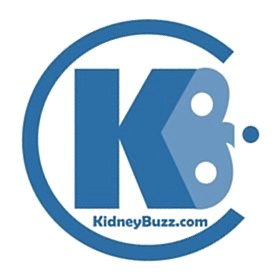A common question that patients have is, "If I were rich, would I get a kidney sooner." According to an American Heart Association study, the answer is "Yes."
Recommended Reading:
Dialysis Patients Dying At Higher Rates Than Than Some Cancer Patients
In Afghanistan, a Booming Kidney Trade Preys on the Poor
Home dialysis reduces COVID-19 exposure, may prevent future infection transmission
Allowing people to register at multiple transplant centers throughout the United States was originally intended to give people who live in rural areas or at great distances from hospitals that specialize in transplant operations an equal shot at available donor organs. But the new study indicates that those who can afford to register as recipients in several centers are more likely to get a donor organ sooner than patients with greater medical need who register with only one.
The study, led by Dr. Raymond Givens, Ph.D., an advanced heart failure and transplant fellow at Columbia University Medical Center in New York, also uncovered that patients listed at multiple sites are more likely to have private insurance. Wealthier people were less likely to die while waiting for a donor organ.
“Multiple-listed patients, despite being less sick, were more likely to receive a transplant,” Givens said.
The report analyzed the data of 686,000 patients listed on the United Network for Organ Sharing (UNOS) database, which manages the national organ transplant database for the entire United States, including Puerto Rico.
The study looked at adult patients from 2000 to 2013 who were categorized as first time, single-organ candidates for heart, lung, kidney, or liver transplants.
In order to be listed in the UNOS database, patients must register with an organ transplant center. The agency encourages and allows patients to list at multiple sites because wait times for organ transplants vary depending on location.
“The whole idea behind multiple listing was intended to give people who live within geographic inequities a way to level the playing field,” Givens said. “The report raises the issue of fairness and certainly calls for a reexamination of the policy.”
There are 11 transplant regions throughout the United States, according to the UNOS website. The number of transplant facilities differs in each region and from state to state. California has 22, Illinois has 9, and West Virginia has 1. Alaska, Idaho, Montana, and Wyoming don’t have any facilities.
The first step to get on the UNOS database starts at an organ transplant center. Patients must endure a thorough battery of tests to determine overall health and transplant feasibility. The examinations are conducted by the team of doctors who work at the transplant site. Patients who want to list at multiple facilities must travel to each location for consideration.
The report attributes the higher rate of transplant to wealthy patients to the fact that richer people can afford transportation, lodging, and other costs associated with listing at multiple sites around the country.
Patients with state-run medical insurance tend to have lower incomes and less means to list themselves at numerous sites.
This is not the first time the multiple listing policy has been called into question, according to Dr. David Klassen, UNOS chief medical officer.
“It’s been controversial for years and quite political,” he told Healthline.
He added that the agency continues to evaluate the process for organ donor transplants.
“We are interested in addressing the root cause of geographic disparity and ways to make multiple listing unnecessary,” he said. Source: Healthline
Study: https://www.ncbi.nlm.nih.gov/pmc/articles/PMC4681637/
Did this answer your question?
Donate! Donate! Donate! The only way that we can keep providing lifesaving news and information is if you donate to KidneyBuzz.com. Support us from as little as $1. Thank you.









